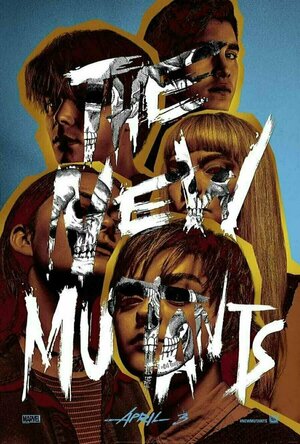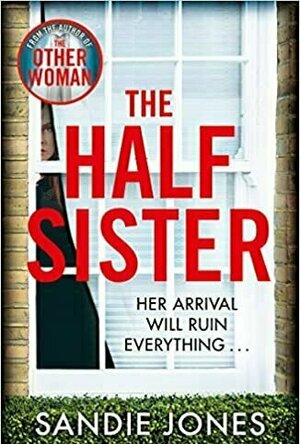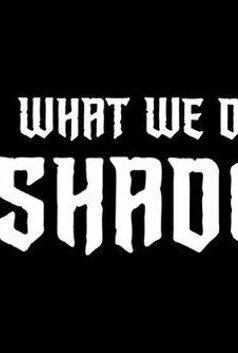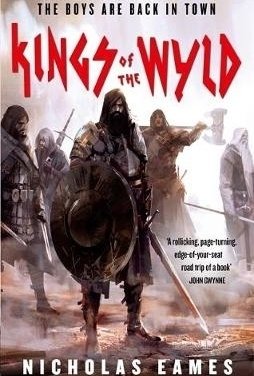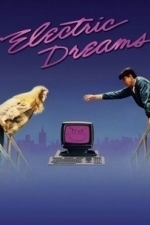Bob Mann (459 KP) rated The New Mutants (2020) in Movies
Sep 9, 2020
The plot: So, my review title suggests that the plot is very closely aligned to M Night Shymalan's "Glass" - his "Split" sequel from last year. A Victorian-style hospital-cum-prison similarly forms the claustrophobic setting for the majority of the movie. This is where the troubled teen Dani Moonstar (Blu Hunt) is taken after being suddenly orphaned in dramatic and mysterious circumstances. The only doctor present, Dr Reyes (Alice Braga), says she is being held there for her own - and society's safety - while her puberty-driven mutant tendencies emerge.
Locked away with her is Rahne (Maisie Williams), Charlie (Sam Guthrie), 'hot' Brazilian hunk Roberto (Henry Zaga) and the gloriously named Illyana Rasputin (Anya-Taylor Joy). Danni's arrival sparks a serious of escalating events that literally lead to all hell breaking loose.
Blu is the warmest colour: What made this Marvel movie stand-out for me, from the normal glass-shattering standard, is that it is predominantly a character-led piece. We spend quite a bit of time (for a Marvel movie) in building relationships between the teens, including a sweet lesbian-coming-out 'will they/won't they' tension between Rahne and Danni.
I was also very much attracted to the performance of Blu Hunt. I admit that this might not just be due to her interesting performance (the indigenous / LBGT angle is intriguing) but because she reminded me strongly of a girl at school who I had a mad crush on and completely failed to get off with! Blu is actually native American (from the Lakota tribe). Given she is the lead and has to carry the movie, it's a surprise that she is only about 5th in the billing: I'd have been upset with the director (Josh "A Fault in our Stars" Boone) about that.
Maisie Williams is also effective in this, and gets top billing, although arguably Anya-Taylor-Joy has emerged - with her wonderful "Emma" - as the bigger star since filming.
But it's Taylor-Joy's Rasputin that really stands out as the most interesting of the characters on show. There's a scene where she goes into action - eyes blazing and 'daemon' hovering - that would make a splendid PC screensaver! Stuff the "Black Widow" standalone movie: I'd go watch Illyana Rasputin kicking ass in her own follow-up movie! (Of course, Anya Taylor-Joy was also prominent in "Glass", which unfortunately cements the similarities between the films.)
The movie has had a long and tortuous path to its final release, being made waaaaaayyyyy back in 2017. As an X-Men movie, it's appeared after the X-Men universe finally imploded (with the disappointing whimper of "Dark Phoenix"). So in that sense it's a bit of a ghost of a flick.
Overall, it's a mixed bag. There's a sense of great familiarity with the contents - particularly with the strong echoes of "Glass", actually filmed after this one (but with 'inversion', who knows anymore?). Even the "Indian legend" that runs through the movie swaps a bear for a wolf but ends with a familiar, rather groan-inducing, motto. (It was used in "Tomorrowland" I think?)
But the young cast are attractive and entertained me for the (pleasantly short) running time. It's not going to win any prizes for originality, or indeed anything else. But it really wasn't the X-Men bust I expected it to be.
(For the full graphical review, please check out One Mann's Movies here - https://bob-the-movie-man.com/2020/09/08/x-men-the-new-mutants-2020-glass-half-full/ . Thanks.)
Ivana A. | Diary of Difference (1171 KP) rated The Half Sister in Books
Oct 5, 2020
About The Author:
I have heard a lot about Sandie Jones, but I haven’t read any books by her prior to The Half Sister. Sandie Jones has worked as a freelance journalist for over twenty years, and has written for publications including the Sunday Times, Woman’s Weekly and the Daily Mail. She lives in London with her husband and three children. The Other Woman is her debut novel.
Synopsis:
I need to mention that the original synopsis of the book may be a bit misleading. Lauren and Kate are two sisters, but they don’t get along too well and their relationship is complicated.
Kate is a reporter, married to lovely Mark, and going through many rounds of IVF treatment, hoping to start a family. Kate had a very close relationship with her father until the day he died, but was never too close to her sister Lauren and their mother, Rose.
Lauren, on the other hand, is a full time mom of three, with a demanding and overprotective husband. She is very close to her mum, and had a complicated relationship with her father, never forgiving him for understanding her in the past.
One day, while Kate, Lauren and their mum are having their usual Sunday roast, a woman knocks on their door and drops a bombshell. Jess claims to be their half-sister.
This allegation is met with denial - how could she be a secret daughter of their father. Their mother is devastated, Lauren is not surprised, and Kate doesn’t believe Jess at all. But as more secrets start to unravel, no one can know who to trust anymore…
My Thoughts:
I loved the idea of this book, even though I am not too big of a fan of domestic mysteries and drama. My impressions were that this would’ve been more psychological thriller, but I was in the wrong. However, despite this, the book is really surprisingly well-written and kept me on my toes until the very end.
The lives of Lauren and Kate in particular were very well written. I can imagine people being able to easily relate to their struggles. The difference between the two sisters is like night and day. I loved the fact that this book was not sugar coating this, and it didn’t end it with a “happily ever after”. Instead, it ended with “we know we are different, and we are working to fix our relationship in its natural course”.
The story about how Jess comes into their lives, and the whole DNA situation was extremely not believable. As well as the fact that doing another DNA test at the beginning of the novel would have solved all assumptions, rather than people believing hearsay and creating more drama. However, I am also aware that drama was needed to keep the story going, so I can’t hold a grudge.
The ending was predictable half-way through the book. Some scenes are completely unnecessary and make the story more complicated. There are many triggering moments in this book. Cheating, domestic violence and abuse, both physical and emotional and abortion. This book may also trigger people that have had difficult relationships with their parents and/or siblings.<br/><br/>Even though not a favorite thriller, I enjoyed this book and recommend it to everyone that loves domestic thrillers. It is a fast-paced read, and the plot twists are juicy.
Kirk Bage (1775 KP) rated What We Do in the Shadows in TV
Jan 22, 2021
The lead duo are joined in all 20 episodes over 2 seasons so far by relative unknowns Natasia Demetriou, Harvey Guillén and Mark Proksch. The first two do adequate jobs of keeping the laughs rolling and the mood steady. But it is Proksch, who brings some knowledge of a working mockumentary farce from his role as Nate is the US version of The Office, who is the stand-out as Colin the energy vampire, who bores his victims to death, or leaves them drained of the will to live. The many ways that single joke is varied to hilarious effect is a thing of true comedic beauty at all times.
The fine balance between the bizarre and ridiculous world of vampires and other monsters with a situation of utter mundanity like flatsharing affords some wonderful moments of laugh out loud insanity. The writing is terrific all the way through, and the bite sized episode lengths ensure it zips along and the joke only wears thin if you gorge on too many in one go. In fact I would strongly recommend not bingeing this one, but rather savouring 2 or 3 in a sitting then leaving it a while. There is something about missing it and coming back to the joke after a break that works better for me.
Some of the things I love about it are the details of the visual world they live in. The paraphernalia of the flat they live in and the clothes they wear is joyous and ever rewarding. There will be things to spot in the background that you missed first time for sure – and that is a sign to me that they wanted to create a classic here and not something disposable. I also adore the opening credit sequence, and sing along every single time.
Then there is the fabulous use of creative swearing, that manages to reach new and surprising heights episode to episode. Berry is especially proficient in this art, leaving me spitting out my tea many times with the use of a profane phrase off the cuff. It is as much the way he says it as what he says, so it is no surprise to me he has been singled out at recent TV awards shows. I hope he gets the recognition he deserves with a shiny trophy or two.
The fact that it was nominated for 8 Emmys for season 2, after only two nods for season 1, also shows that this is an entity that gets better if you stick with it. At first the pattern of the humour may not gel, but the more you get used to it, the character quirks and various relationships, the rewards as a viewer are exponentially good. And if you watch long enough there are also some tasty cameo parts that turn up… but I won’t spoil the surprises here.
Is it a joke that can run and run? No probably not. But I would like to at least see a third season, to wrap it all up. Especially as season 2 ends on somewhat of a cliffhanger, as much as a puerile comedy like this can do. I am a fan. And I imagine I’ll always be able to go back and enjoy an episode here and there to cheer me up. Brilliant stuff, that has its heart and its funny bones in all the right places. Go on, stick your teeth into it!
Natacha (374 KP) rated Kings of the Wyld in Books
Sep 29, 2019
Kings of the Wyld is a "getting out of retirement of one last job" story. A band of five getting back together to save the daughter of one of them. The story is very well written, action-packed with a touch on humour here and there.
Things I liked:
-All the characters are very well written. They all have their own unique voice, personality and they offer something different to the band as well as the story.
-The relationships between all the characters are well crafted. By the end, you know and feel how close this band is and how much they love each other.
-I generally adore when an action/adventure book or movie has just a hint of comic relief without going overboard and turning it into stupid moments. And the author knows exactly when and where to add this little moment of humour to make you laugh without turning the story into ridicule. Love, love that!
-You never get bored. There is always something happening, twists and turns and obstacles being thrown to our heroes, without the story getting repetitive.
-They weren't a lot of twists and most were obvious but one of them I didn't see it coming. Maybe if I had paid more attention I could have seen it coming but I didn't so I was quite surprised.
-The final battle. I spend the entire book wondering how 5 guys will manager to fight a whole army. And the answer wasn't something that I was expecting and it was epic! Maybe with some clichés, like the "final speech to get people to follow you", but they were all so well done!
Things I didn't like:
-The fantasy world contains EVERY creature ever mentioned in fantasy, folk stories, and mythologies. From dragons and orcs to merpeople to vampires and werewolves. Which is amazing and interesting but... because there are so many creatures mentioned some of them are not described maybe because we should know how they look (?) and if you add all the author places and his own fantasy creature some time I got confused and overwhelmed and didn't necessarily know what kind of creature the author is talking about and I couldn't picture the scene properly in my mind.
-Magic has no rules. Which I don't really mind but.... [Spoiler] at some point it was used in a way that kind of put me off. Towards the end, our primary MC loses his hand and I liked the fact that the author didn't shy away from injuring his character but... this was fixed a chapter later with a magic potion that just made his hand grow back. What? Why? And this is where a draw the line on the "magic with no rules". Don't use random magic as a way to "fix" your character because you didn't want them to be hurt after all! Scars are witness to our own story and our past. Those guys went through a crazy adventure they should have scares and injuries, so if one of them loses his hand during a battle why go back on that a chapter later with a convenient magic potion. I was quite mad about that part but it was just a minor part of the story.
Despite a couple of tiny details, I thoroughly enjoyed this book and would highly recommend it. It was one of the best books I've read so far this year.
The review can also be found here: https://natachainreviewland.wordpress.com/2019/09/29/king-of-the-wyld-by-nicholas-eames/
Andy K (10823 KP) rated Electric Dreams (1984) in Movies
Oct 13, 2019
Miles is an unorganized, nerdy architect who is delighted to discover a young, beautiful cellist moving in to the apartment above his sparse decorated pad in San Francisco. At the same time, a work colleague tells Miles he should get himself organized so he doesn't miss meetings spending all his time working on a new earthquake=proof brick, his dream pet project. Miles heads to his local electronic store (80s version) and gets talked into buying one of these "new" personal computers which everyone seems to be getting.
After some initial difficulty during set up, Miles decides to fully jump in to the PC world and not only sets up his new toy, but decides to have it fully integrated into his apartment including running his lights, door locks and appliances. He then thinks it would be a good idea to do a mass download of information for his work servers to beef up his own unit's capacity. He quickly realizes this is an overload to his machine when it starts to buzz and flash. In a panic, he douses the machine with some champagne to cool it off inadvertently giving it the spark of "life".
His new machine works quickly to understand its new world around including listening and harmonizing music with the beautiful neighbor upstairs. This leads to the two town house cohabitants developing a relationship. This does not sit well with the PC eventually as "he" has now also evolved to the point where he wants to understand love. Tensions escalate and there is a confrontation for the ultimate fate of the relationships and who will ultimately get the girl.
Since it had been probably 30 years since I had seen Electric Dreams, one of those guilty pleasures from the 80s, I was extremely anxious to rewatch; however, was also worried a new viewing in my adulthood would ruin the magic I had remembered from my youth. I couldn't have been more wrong.
The first thing I had forgotten was all the humor of the film including those awkward moments when Miles and the computer where getting to know each other and the goofy dialogue. Also, it's funny how I read a lot of the functions the computer performed had to be simulated at the time since home PCs were still pretty new to everyone at that point, but now those functions are fairly commonplace including the aforementioned "Smart Home" features among other things.
Yes fine, there are plenty of 80s staples present almost immediately like music montages, bad hairdos, leg warmers and boom boxes, but that still gives the movie charm. After thinking about it, there were elements from other 80s classics like Weird Science, WarGames, and a lot of Short Circuit where an AI was learning about itself. Who remembers Max Headroom?
The soundtrack for the film is also front and center with much of it playing a key role in the budding relationship between Miles and his musical love interest, but it works well and still holds up.
I also have to mention Virginia Madsen. I looked up she was 23 when she made this film (she looked like she was 18), but still looks as remarkable as she did then (80s crush speaking here).
I'm sure I probably still revere this movie more than the people who actually made it, but I can handle that.

Filipino Social - Dating Chat Philippine Singles
Lifestyle and Social Networking
App
Are you attracted to Filipino people or are you looking to meet people in Philippines? We have a...

Venezuela Social - Meet & Chat with Venezuelans
Lifestyle and Social Networking
App
Are you attracted to Venezuelan people or are you looking to meet people in Venezuela? We have a...

Meditation Feel The Energy
Health & Fitness and Lifestyle
App
For your personal development and work on yourself, choose the unique Feel the Energy meditation...

HappiMe for Adults
Lifestyle and Productivity
App
HappiMe has 3 versions of this app: - HappiMe (Green icon for younger children up to 11) - HappiMe...

Destiny Map-Numerology Astrology Taro
Lifestyle and Productivity
App
- A NEW section: "How to conquer a man”. Featured by Apple as: “New and Noteworthy”,...
